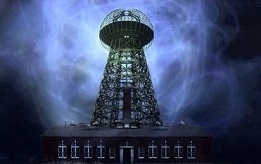Fighter
posted this
25 September 2019
@UndisclosedMember, in my opinion we will not be able to get any results if we're thinking only in the old way, what we've been told in schools. We can't build different/revolutionary machines and can't get different results following the same way and following the same standard "recommendations". That way of thinking, those standard paths and methods, those "recommendations" got us in the situation we're in today: burning everything on our planet in order to get some energy (just like we did 100 years ago) but now we're actually in process of destroying our planet and ourselves.
Look at this man, he was the best inventor of all times, while other physicists told us and still tell us in their theories that a over-unity machine is impossible he actually made over-unity machines. Does he look concerned about "parasitic" in all those spikes surrounding him ? Does he look concerned about if his switching methods have ringings or if the switching is perfect ?

Let me tell you something, unfortunately this man was too much ahead of his times. He had no oscilloscopes, his "MOSFETs" were big capacitors discharging in spikes produced by a rotating device, as that device was rotating faster then more spikes/discharges it produced, that's how he controlled the frequency of his "MOSFETs". Do you think his switching was perfect and without ringings ? Probably it was full of ringings and "parasitic" as we call them today.
What they tell us in schools is that we should eliminate all those "ringings" and "parasitic" in order to have our machines working "better". What they don't understand or don't want to tell us is those "ringings" and "parasitic" are actually the way our machine is interacting with the zero-point/ether (or however we want to call it) field and the only way our machine can be an open system capable of gathering energy from that field instead of being a closed under-unity system. I'm talking about interaction like this (red arrow):

Try to simulate ZPM in any simulation software, you have all the details here, because of the "restrictions" (limited formulas) included in that software you'll see the simulation will tell you this device is wasting the entire energy provided by the DC source in a useless fight between two opposing magnetic fields. The simulation will tell you that because of those opposing magnetic fields the coils of the ZPM should overheat and there would be not enough remaining energy to additionally power up a light-bulb on its load. You will not see in that simulation what I'm actually presenting here, the actual behavior and let me tell you the coils of ZPM are always cold, never noticed them becoming at least a bit warmer.
That's why we should start thinking out-of-the-box, forget their "recommendations" and what they tell us and actually experiment and see the real behavior and results of this kind of devices with our own eyes. Theory is good but only to a certain point where what theory tell us don't match with what we see in our benchmarks, in our experiments.
P.S.: I'm still curious who are those "we", you didn't answered to that question.
| "If you want to find the secrets of the universe, think in terms of
energy, frequency and
vibration." |
|
|
Nikola Tesla |






